Джон Фаулз - The Tree
Здесь есть возможность читать онлайн «Джон Фаулз - The Tree» весь текст электронной книги совершенно бесплатно (целиком полную версию без сокращений). В некоторых случаях можно слушать аудио, скачать через торрент в формате fb2 и присутствует краткое содержание. Жанр: Современная проза, на английском языке. Описание произведения, (предисловие) а так же отзывы посетителей доступны на портале библиотеки ЛибКат.
- Название:The Tree
- Автор:
- Жанр:
- Год:неизвестен
- ISBN:нет данных
- Рейтинг книги:5 / 5. Голосов: 1
-
Избранное:Добавить в избранное
- Отзывы:
-
Ваша оценка:
- 100
- 1
- 2
- 3
- 4
- 5
The Tree: краткое содержание, описание и аннотация
Предлагаем к чтению аннотацию, описание, краткое содержание или предисловие (зависит от того, что написал сам автор книги «The Tree»). Если вы не нашли необходимую информацию о книге — напишите в комментариях, мы постараемся отыскать её.
The Tree — читать онлайн бесплатно полную книгу (весь текст) целиком
Ниже представлен текст книги, разбитый по страницам. Система сохранения места последней прочитанной страницы, позволяет с удобством читать онлайн бесплатно книгу «The Tree», без необходимости каждый раз заново искать на чём Вы остановились. Поставьте закладку, и сможете в любой момент перейти на страницу, на которой закончили чтение.
Интервал:
Закладка:
One interrogator even accused me of bad faith: that if I sincerely felt so deeply on the matter, I should write more about it. But what I gain most from nature is beyond words. To try to capture it verbally immediately places me in the same boat as the namers and would — be owners of nature: that is, it exiles me from what I most need to learn. It is a little as it is in atomic physics, where the very act of observation changes what is observed; though here the catch lies in trying to describe the observation. To enter upon such a description is like trying to capture the uncapturable. Its only purpose can be to flatter the vanity of the describer — a function painfully obvious in many of the more sentimental natural history writers.
But I think the most harmful change brought about by Victorian science in our attitude to nature lies in the demand that our relation with it must be purposive, industrious, always seeking greater knowledge. This dreadfully serious and puritanical approach (nowhere better exhibited in the nineteenth century than in the countless penny magazines aimed at young people) has had two very harmful effects. One is that it turned the vast majority of contemporary Western mankind away from what had become altogether too much like a duty, or a school lesson; the second is that the far saner eighteenth-century attitude, which viewed nature as a mirror for philosophers, as an evoker of emotion, as a pleasure, a poem, was forgotten. There are intellectual reasons as well for this. Darwin made sentimental, innocence, nature as mainly personal or aesthetic experience, vaguely wicked. Not only did he propose a mechanism seemingly as iron as the steam-engine, but his very method of discovery, and its success in solving a great conundrum, offered an equally iron or one-sided model for the amateur naturalist himself, and made the older and more humanist approach seem childish. A 'good’ amateur naturalist today merely means one whose work is valued by the professional scientists in his field.
An additional element of alienation has come with the cinema and television, which are selective in another way. They present natural reality not only through other eyes, but a version of it in which the novelty or rarity of the subject plays a preponderant part in choice and treatment. Of course the nature film or programme has an entertainment value; of course there are some social goods in the now ubiquitous availability of copies of other people’s images and opinions of actual things and events; but as with the Linnaean system, there is a cost. Being taken by camera into the deepest African jungle, across the Arctic wastes, thirty fathoms deep in the sea, may seem a 'miracle of modern technology’; but it will no more bring the viewer nearer the reality of nature, or a proper human relationship with the actual nature around him, than merely reading novels is likely to teach the writing of them. The most one can say is that it may help, a much more common result is to be persuaded of the futility of even trying.
Increasingly we live (and not only in terms of nature and novels) by the old tag, Aut Caesar, aut nullus . If I can’t be Caesar, I'll be no one. If I can't have the knowledge of a scientist, I’ll know nothing. If I can't have superb close-ups and rare creatures in the nature around me, to hell with it. Perhaps any representation of nature is better, to those remote from it in their daily lives, than none. Yet a great deal of such representation seems to me to descend straight from the concept of the menagerie, another sadly alienating selection, or reduction, from reality. Poking umbrellas through iron bars did not cease with the transition from the zoo to the screen.
Much of seventeenth- and eighteenth-century science and erudition is obsolete nonsense in modern scientific terms: in its personal interpolations, its diffuse reasoning, its misinterpreted evidence, its frequent blend of the humanities with science proper — its quotations from Horace and Virgil in the middle of a treatise on forestry. But one general, if unconscious, assumption lying behind almost all pre-Victorian science — that it is being presented by an entire human being, with all his complexities, to an audience of other entire human beings — has been much too soon dismissed as a mere historical phenomenon, at best exhibiting an engaging amateurishness, at worst sheer stupidity, from neither of which we have anything to learn. It is not of course the fault of modern scientists that most of their formal discourse is now of so abstruse a nature that only their fellow specialists can hope to understand it; that the discourse itself is increasingly mechanical, with words reduced to cogs and treated as poor substitutes for some more purely scientific formulation, nor is it directly their fault that their vision of empirical knowledge, the all-important value they put upon proven or demonstrable fact, has seeped down to dominate the popular view of nature — and our education about it. Our fallacy lies in supposing that the limiting nature of scientific method corresponds to the nature of ordinary experience.
Ordinary experience, from waking second to second, is in fact highly synthetic (in the sense of combinative or constructive), and made of a complexity of strands, past memories and present perceptions, times and places, private and public history, hopelessly beyond science's powers to analyse. It is quintessentially 'wild’, in the sense my father disliked so much: unphilosophical, irrational, uncontrollable, incalculable. In fact it corresponds very closely — despite our endless efforts to 'garden', to invent disciplining social and intellectual systems — with wild nature. Almost all the richness of our personal existence derives from this synthetic and eternally present 'confused’ consciousness of both internal and external reality, and not least because we know it is beyond the analytical, or destructive, capacity of science. Half by its principles, half by its inventions, science now largely dictates and forms our common, or public, perception of and attitudes to external reality. One can say of an attitude that it is generally held by society; but society itself is an abstraction, a Linnaeus-like label we apply to a group of individuals seen in a certain context and for a certain purpose, and before the attitude can be generally held, it must pass through the filter of the individual consciousness, where this irreducible ‘wild' component lies — the one that may agree with science and society, but can never be wholly plumbed, predicted or commanded by them.
One of the oldest and most diffused bodies of myth and folklore has accreted round the idea of the man in the trees. In all his manifestations, as dryad, as stag-headed Herne, as outlaw, he possesses the characteristic of elusiveness, a power of ‘melting’ into the trees, and I am certain the attraction of the myth is so profound and universal because it is constantly ‘played' inside every individual consciousness.
This notion of the green man — or green woman, as W. H. Hudson made her — seen as emblem of the close connection between the actuality of present consciousness (not least in its habitual Hight into a mental greenwood) and what science has censored in man’s attitude to nature — that is, the (wild, side, the inner feeling as opposed to the outer, fact-bound, conforming face imposed by fashion — helped me question my old pseudo-scientist self. But it also misled me for a time. In the 1950's I grew interested in the Zen theories of 'seeing' and of aesthetics; of learning to look beyond names at things-in-themselves. I stopped bothering to identify species new to me, I concentrated more and more on the familiar, daily nature around me, where I then lived. But living without names is impossible, if not downright idiocy, in a writer, and living without explanation or speculation as to causality, little better — for Western man, at least. I discovered, too, that there was less conflict than I had imagined between nature as external assembly of names and facts and nature as internal feeling; that the two modes of seeing or knowing could in fact marry and take place almost simultaneously, and enrich each other.
Читать дальшеИнтервал:
Закладка:
Похожие книги на «The Tree»
Представляем Вашему вниманию похожие книги на «The Tree» списком для выбора. Мы отобрали схожую по названию и смыслу литературу в надежде предоставить читателям больше вариантов отыскать новые, интересные, ещё непрочитанные произведения.
Обсуждение, отзывы о книге «The Tree» и просто собственные мнения читателей. Оставьте ваши комментарии, напишите, что Вы думаете о произведении, его смысле или главных героях. Укажите что конкретно понравилось, а что нет, и почему Вы так считаете.

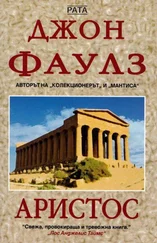
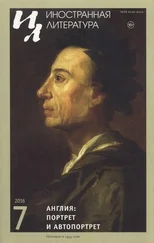
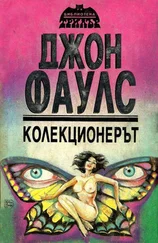
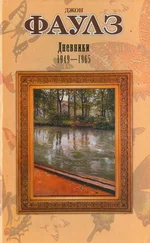

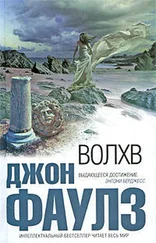
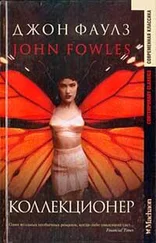
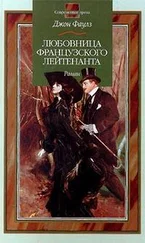
![Джон Фаулз - Вылазка в действительность [антология]](/books/431648/dzhon-faulz-vylazka-v-dejstvitelnost-antologiya-thumb.webp)
![Джон Фаулз - Мантисса [litres]](/books/438194/dzhon-faulz-mantissa-litres-thumb.webp)